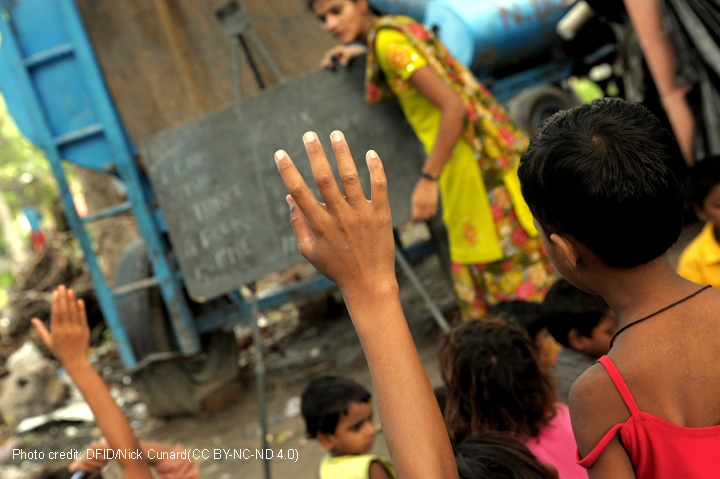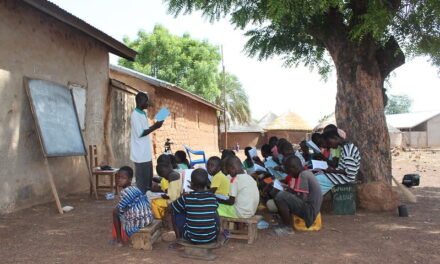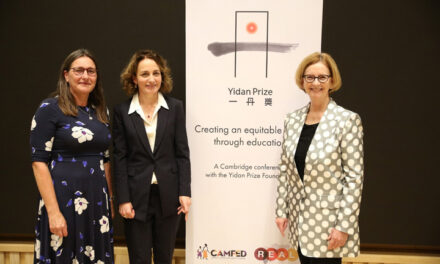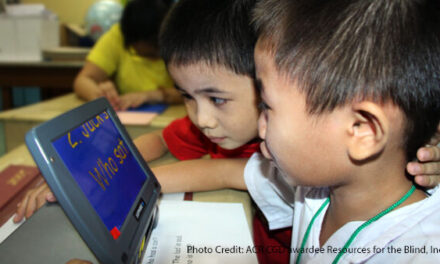This blog was written by Kirsty Newman, RISE Programme Director, and originally published on the RISE Programme website on 25 May 2021.
There has been much discussion within in the global education community about the remarkable and clear-sighted manifesto written by the Gates Foundation’s outgoing Head of Global Education Girin Beeharry (if you have not read it yet, go do so). The article focusses particularly on the role of international development partners not because he is suggesting that they should determine national priorities but because they do play a big role (for good and for bad) in influencing national priorities. I have been reflecting on why it has been such an uphill struggle to get the global education architecture to focus on foundational learning as Girin suggests they must. I don’t think it is the case that development partners are not interested in foundational skills; in all my years in the development sector I have never heard anybody say that learning isn’t important. But, I think there are a couple of barriers getting in the way of progress.
Some development partners are in denial…
Firstly, there are some development partners who remain in complete denial about the extent of the learning crisis. For these organisations it is simply too embarrassing – for them and for the governments they support – to acknowledge how many children are not learning even the basics. So, while they can acknowledge that foundational learning is important, they are not able to see (or admit to seeing) the urgency with which it needs to be tackled.
…But many more are unrealistic about the magnitude of the task
But I don’t think most development agencies fall into this category. I think a far more common problem is that development agencies acknowledge the learning crisis and say that tackling it is a priority, while at the same time also saying they will prioritise a multitude of other things – the digital divide, youth employability, access for adolescent girls, preparing for industry 4.0, etc., etc. My impression with this group is that they have not really understood the magnitude of the task ahead of us and are therefore not really understanding that priority needs to mean priority.
This issue was illustrated to me when I spoke to a former colleague who works for a major development funder about a new girls’ education program they were designing. The programme would be implemented in a country where the vast majority of children do not achieve basic literacy by the end of primary school. I suggested that they strip the design back to focus just on getting the girls to learn. The response was yes, of course we want them to learn but we can’t only do that. The implication was that the program would surely produce learning and that there was plenty of room for extra bells and whistles – this despite the fact that vanishingly few large-scale development interventions have ever demonstrated an impact on learning.
I do not conclude that because achieving learning is hard, we should not try – it is simply too important an aim to abandon. Rather, like Girin, I think that we need to focus and put far more effort into supporting reforms that work.
Priorities at odds with foundational learning
Unfortunately, some priorities of development partners are completely at odds with the focus on learning. I feel that the popular focus just now on tackling the digital divide, in particular, is a dangerous distraction: there is no evidence that connectivity will solve the fundamental problems at the root of the learning crisis and there is good evidence that internet access for schools is neither necessary (as demonstrated by the millions of people like me who learnt before the internet was a thing!) nor sufficient (as demonstrated by the disappointing results of most Edtech interventions in developing countries) to get kids learning. Of course, internet access can have other benefits but in countries where most children are not even learning to read there are big risks to diverting much needed funding, attention, and political capital away from getting children to learn.
Priorities that can’t be achieved without foundational learning
Other priorities on development partners’ shopping lists, however, actually strengthen the case for prioritising foundational learning first. Indeed, to quote from Girin’s postscript to his original essay (also a must-read), focussing on some of these later priorities before most children can do the basics is like “an invitation to build a skyscraper not from the foundation up, but by placing windows, doors, and roof mid-air, in defiance of gravity”. For example, while many agencies aim to improve employability, it is hard to imagine that the TVET and skills training they are funding will ever succeed in creating a workforce which can compete on the global stage if most children leave school illiterate. Surely learning to read and do basic math needs to be a priority first since it is very difficult to add value with later interventions without that? Similarly, getting girls to stay in school will be far easier if those girls are learning while they are there. To quote Karthik Muralidharan, one of the RISE Principal Investigators: “going to school, day after day, and not understanding anything is a miserable experience”. This is illustrated in a fascinating new paper from Michelle Kaffenberger, Danielle Sobol, and Deborah Spindelman which shows that low learning is an important driver of children’s dropout, often preceding or exacerbating other more proximate causes of dropout like marriage or entrance into the workforce.
It is important to note that safeguarding of children is one priority that we can all agree on. We must all do everything we can to keep children safe from harm. But when it comes to what education is seeking to achieve, until we manage to get most children learning the basics, other goals, no matter how desirable, are simply not possible.
Conclusion
Of course, I am not suggesting that getting development agencies to prioritise will be easy. Any politician will tell you that you need policies that please a broad range of constituencies, and senior leaders in aid organisations are no different. It will require a bold leader to prioritise foundational learning in the face of a senior manager who thinks Edtech is the answer, an entire team devoted to TVET, pressure from donors to prioritise getting adolescent girls to stay in school, and so on. But, as Girin’s manifesto sets out so eloquently, now is surely the time for just such visionary leaders to step up.





